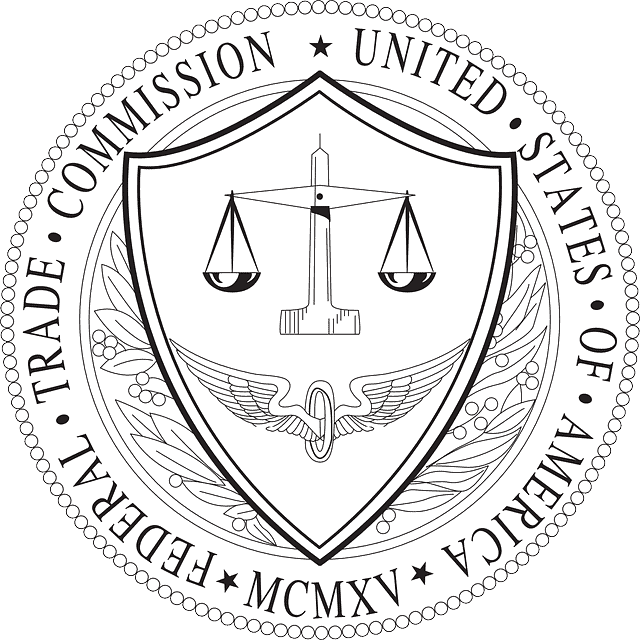
Ever felt overwhelmed trying to understand your credit report, or wondered how it impacts your financial journey? Fear not! In this blog post, we’ll break down the Fair Credit Reporting Act (FCRA) – a federal law designed to protect your consumer rights – and explain how it affects you, credit bureaus, and employers. You’ll learn valuable tips for maintaining good credit health and become savvy in navigating the world of credit reporting. Ready to take control of your financial future? Let’s dive in!
Key Takeaways
- The Fair Credit Reporting Act (FCRA) is a federal law that protects consumer credit information, granting access to free credit reports and the right to dispute errors.
- It oversees and regulates credit bureaus & reporting agencies for accuracy & fairness in consumer reporting.
- Consumers can protect their financial health by regularly monitoring their reports, disputing any inaccuracies, making timely payments & keeping utilization low.
Understanding the Fair Credit Reporting Act (FCRA)
The FCRA, a federal law, governs the collection, access, and use of consumer credit information. Its aim is to maintain fairness, accuracy, and privacy for all consumers. It sets the rules for credit reporting agencies, credit bureaus, and businesses that use consumer credit reports, while granting consumers essential rights, such as accessing free credit reports and disputing errors.
But where did this important legislation originate, and what are its key objectives?

Origins of the FCRA
The U.S. Congress enacted the Fair Credit Reporting Act (FCRA) in 1970 with the intention of safeguarding consumer rights and promoting accuracy, fairness, and confidentiality of personal information in credit reports. This was done to promote trustworthiness and fairness in the system. This legislation led to the Accurate Credit Transactions legislation. Act, aimed to provide consumers with the ability to access their credit reports without charge, challenge any mistakes or inaccuracies, and maintain their privacy – all crucial for financial progress.
But what are the main objectives of the FCRA?
Key Objectives of the FCRA
The primary aims of the FCRA are threefold: to safeguard consumers’ rights, oversee credit bureaus and reporting agencies, and guarantee accurate and equitable credit reporting.
The FCRA ensures proper collection and access of credit information. It also obligates consumer reporting agencies to adopt fitting procedures that guarantee the confidentiality and accuracy of credit information. This makes the FCRA a vital instrument in protecting consumers.

The Role of Credit Bureaus and Reporting Agencies
Credit bureaus gather, store, and sell information about consumer credit, while collection agencies and credit reporting agencies must adhere to the FCRA to ensure that the data they provide is accurate and fair. These agencies play a vital role in managing our credit health, affecting our financial progress, and granting us access to various financial services.
But what exactly do credit bureaus do, and how do reporting agencies comply with the FCRA?
Understanding Credit Bureaus
Credit bureaus are responsible for collecting and maintaining consumer credit information and calculating credit scores. The three nationwide credit bureaus – Equifax, Experian, and TransUnion – handle the majority of consumer credit data in the United States.
These bureaus are instrumental in determining our creditworthiness and financial opportunities. Therefore, their adherence to the FCRA guidelines is of utmost importance.
Compliance with the FCRA
Reporting agencies must comply with the FCRA guidelines to ensure the accuracy, fairness, and privacy of consumer credit information. This includes:
- Verifying the accuracy of the information with the source
- Fixing any errors or inaccuracies discovered
- Taking reasonable steps to secure consumer information
Adherence to the FCRA is fundamental in upholding consumer trust and maintaining a fair credit reporting system.
Consumer Rights Under the FCRA
The FCRA grants consumers crucial rights, empowering us to access free credit reports, dispute errors, and protect our credit information. These rights significantly contribute to maintaining our credit health and overseeing our financial progress.
But how can we access free credit reports, and what should we do if we find errors on our reports?
Accessing Free Credit Reports
Consumers can obtain a free credit report every 12 months from each of the three nationwide credit bureaus, and even weekly reports until December 2023. To request your free credit report, visit the centralized website, call the toll-free number, or send a request to the Annual Credit Report Request Service.
Regularly reviewing your credit reports from all three bureaus helps ensure accuracy and detect signs of identity theft. Credit monitoring is a valuable tool in this process.
Disputing Errors and Inaccuracies
In case of any errors or inaccuracies on your credit report, swift action is required. Contact the credit bureaus and the business that provided the information to rectify the issue. Disputing errors not only helps maintain accurate credit information, but also protects you against potential identity theft.
By actively monitoring your credit reports and addressing inaccuracies, you’re taking charge of your financial health.

Real World Example of Enforcing FCRA Laws
After completing Chapter 7 bankruptcy, Nina was eager to start rebuilding her credit. She got a secured credit card and made payments diligently. After a year, Nina checked her credit report and was shocked to see the credit card still being reported as “included in bankruptcy” even though it was opened post-filing.
Nina contacted the credit card company seeking correction since this card could not have been discharged in a bankruptcy before it even existed. But the company insisted the reporting was correct.
Upset by the inaccurate credit information, Nina contacted one of our bankruptcy attorneys for advice. Our attorney explained that the Fair Credit Reporting Act requires credit bureaus and furnishers to fix any errors when alerted, or face penalties.
We helped Nina draft dispute letters to the credit bureau and furnisher outlining the clear reporting error under the FCRA’s provisions regarding post-bankruptcy credit. If they failed to investigate and correct it, our attorney would help Nina take legal action.
Soon after, the credit card company apologized and updated the tradeline status. The credit bureau also fixed the error. Nina’s credit score increased 80 points the next month since the account was no longer wrongly showing as bankruptcy-related.
Nina was grateful for our assistance in enforcing her FCRA rights. She realized credit report errors can happen to anyone, but consumers have power under the law to dispute and remedy mistakes. Her financial rebuilding efforts were soon back on track.
What to do if you see discharged debts on your credit report
Limitations and Restrictions Imposed by the FCRA
The FCRA imposes limitations on who can access credit reports and for what purposes, ensuring consumer privacy and protection. These restrictions significantly help in preventing unauthorized access to our sensitive credit information and ensure the safety of our financial well-being.
Access to credit reports is a privilege given to certain people. But what are the criteria and situations surrounding them?
Permissible Purposes for Accessing Credit Reports
Access to credit reports is limited to those with a legal reason, such as lenders, landlords, employers, and insurance companies. The FCRA outlines specific permissible purposes for accessing credit reports, including credit transactions, employment purposes with written consent, and underwriting of insurance.
These limitations make sure that our credit information is accessed only when necessary and for valid reasons.
Protecting Consumer Privacy
The FCRA protects consumer privacy by restricting access to credit reports and allowing consumers to opt out of prescreening offers. Prescreening is the process of lenders and insurers evaluating an individual’s credit report without any prior authorization. The purpose is to decide whether they should offer credit or insurance to the individual.

Enforcement and Penalties for Non-Compliance
Regulatory agencies like the Federal Trade Commission (FTC) and the Consumer Financial Protection Bureau (CFPB) enforce the FCRA, with penalties imposed on those who violate its provisions.
Penalties for non-compliance with the FCRA can be severe, including:
- Monetary fines
- Damages
- Attorney fees
- Criminal charges for making false statements
These penalties serve as a deterrent for non-compliance and reinforce the importance of adhering to the FCRA, ensuring a fair and accurate credit reporting system for all consumers.
How the FCRA Affects Employers
Employers must adhere to the FCRA when using credit reports for employment purposes, including obtaining consent and providing adverse action notifications. Adherence to the FCRA not only safeguards job applicants and employees, but also promotes a fair and transparent hiring process.
So, what are the specific requirements for employers under the FCRA?
Obtaining Consent
Employers must obtain written consent from job applicants or employees before accessing their credit reports. This consent ensures that individuals are aware of the employer’s intentions and protect their privacy.
Employers should have a clear and comprehensive consent form outlining the purpose of the credit report and the individual’s rights, and ensure it is signed and dated by the applicant or employee.
Adverse Action Notifications
If an employer takes adverse action based on a credit report, such as denying a job application or terminating employment, they must notify the affected individual and provide information about their rights under the FCRA. This notification must include:
- The contact information of the consumer reporting agency that provided the credit report
- A statement that the agency did not make the decision to take the adverse action
- A notice of the individual’s right to dispute the information provided by the agency.
The individual also has the right to obtain a free copy of their credit report from the consumer reporting agency, as stated in the consumer report guidelines.
Tips for Maintaining Good Credit Health
Maintaining good credit health is crucial for achieving your financial objectives and leveraging various financial opportunities. So, how can you ensure that your credit remains in top shape?
Regularly Monitoring Credit Reports
Regularly reviewing your credit reports from all three nationwide credit bureaus helps ensure accuracy and detect signs of identity theft. By keeping a close eye on your credit reports and addressing any inaccuracies, you can prevent potential credit damage and protect your financial health.
Remember, you can obtain a free credit report every 12 months from each of the three nationwide credit bureaus and even weekly reports until December 2023.
Building and Maintaining Good Credit
Building and maintaining good credit involves timely bill payments, keeping credit utilization low, and managing your credit accounts responsibly. By practicing these responsible credit habits, you can improve your creditworthiness and access various financial opportunities, such as loans and credit cards with better terms and lower interest rates.
Summary
In conclusion, the Fair Credit Reporting Act plays a vital role in protecting consumer rights, regulating credit bureaus and reporting agencies, and ensuring accurate and fair credit reporting. By understanding the FCRA, monitoring your credit reports regularly, disputing errors, and practicing responsible credit habits, you can take control of your financial health and secure a bright financial future.
Frequently Asked Questions
What is the purpose of the Fair Credit Reporting Act (FCRA)?
The Fair Credit Reporting Act (FCRA) is a federal law that helps to ensure the accuracy, fairness and privacy of the information in consumer credit bureau files. It was passed in 1970 to promote accuracy, fairness, and the privacy of personal information gathered by Credit Reporting Agencies (CRAs) and regulates the way credit reporting agencies can collect, access, use and share this data.
The FCRA requires CRAs to provide consumers with a copy of their credit report upon request, and to provide consumers with a summary of their rights under the FCRA. It also requires CRAs to investigate any disputed information and correct any inaccurate information.
How often can I get a free credit report?
You can get a free credit report every 12 months from each of the three nationwide credit bureaus, plus weekly reports until December 2023.
What rights do consumers have under the FCRA?
Consumers have the right to access free credit reports, dispute any inaccuracies or errors, and protect their credit information – all of which are rights granted to them under the FCRA.
What are the consequences of not complying with the FCRA?
Non-compliance with the FCRA can have serious consequences, including fines, damages, attorney fees, and even criminal charges.





